|
The positive attitudes I encountered during my first visit to Mogadishu at the beginning of March suggested that peace and stability might finally be taking root in the Somali capital. Last week's suicide bomb attack at the National Theatre was an important reminder that security in the city is still extremely fragile. On March 8th, two photographers and I took part in a parade for International Women's Day outside the National Theatre. Ladies danced in the streets wearing coordinated traditional outfits in every colour imaginable. Asha Omar, the head of the Somali Women's Federation, told me the women wore matching clothes to show the men how well-organised they were. The streets were closed to traffic; the African Union's armoured vehicles and soldiers with AKs were at times a necessary reminder of where we were. "This is not how to behave in a war zone", said Fanha, our guide and translator, at one point, having dragged me from a crowd of dancing women. One lady had started striking my bottom with a tambourine while others were shrieking and clapping and wiggling their hips to the beat. It would have felt churlish to walk away without joining in. Abdi Hosh, Minister for Constitution, described it as "the first such event I ever observed in Somalia and the first event held at the venue for 21 years". The March reopening of the National Theatre symbolised the consolidation of peace in Mogadishu after muslim extremists al Shabaab pulled out of the city last August. Al Shabaab abhorred leisure activities, particularly for women. It was sickening to hear that a similar celebration at the National Theatre was struck by a suicide bomb strapped to a young Somali girl on 4th April last week. Personally it was poignant for having been there so recently and witnessed peoples' hope for the city first hand. During our 6-day stay in Mogadishu, we followed another very positive story - the Somali Olympic athletics team, most of whom are training 6-days a week for London 2012. One male and one female runner will take part. Around 10 volunteers are working to make Somali representation at the Olympics possible. They are fundraising, organising visas and passports, facilitating training, supporting the young female runners who are fighting stereotypes to take part, and battling for necessary equipment. Amal, 18, told me she used to wear a burkha over her sports kit to get to training sessions while al Shabaab controlled parts of the city. She would meet her coach behind walled compounds and run in secret. Incredibly determined, Amal's goal is to win medals for her country. With such persistence and good-will behind the sporting federations in Somalia, it was hugely dispiriting to hear that among the 10 left dead by last week's blast were two of the main champions of the Olympic team, the head of the Somali Olympic Committee, Aden Yabarow Wiish, and Football Federation chief, Said Mohamed Nur. It is very sad that they will not see their hard work pay off in London later this year, but at least the world will be watching.
0 Comments
I'm off to Botswana on 7 June with a group of young people from the UK's leading youth homelessness charity, Centrepoint. I'll be managing what promises to be an incredible initiative... the young people are going to be working on a wildlife reserve, relocating a wildlife orphanage from the north of the country. I'll be filming their personal journeys and achievements out there, as well as running their day to day activities and showing them some of the sights - the Okovango Delta just after it floods, and the Makgadikgadi Salt Pans. Updates / website info for the project to follow.
Extraordinarily, Arriva trains' rail replacement bus service yesterday picked 54 passengers up from Wolverhampton, myself included, deposited us on the platform of a tiny, provincial railway station called Bilbrook somewhere outside Wolverhampton, and left us there standing out in the cold for three hours with no explanation. My journey from London to Borth, usually four hours, took eight. I was beginning to have some faith in the system... "Live in Borth!", I've been saying, "it's four hours door-to-door - no different to the Cotswolds"... But this has been dispelled and replaced with melancholy.
I'm currently living on a beach in Wales with a spaniel called Roo. She is the ultimate writers' companion: never talks to me when I don't want her to but always listens when asked. 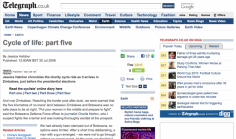 http://www.telegraph.co.uk/earth/3348318/Cycle-of-life-part-five.html I'm so glad we went through Zimbabwe in the end. There was much hoo-ha beforehand, deciding whether it would be foolhardy as a journalist/ex-BBC reporter to enter the country, whether there would be google checks on the border post, whether we'd get searched etc. Anyway, it turned out that the border post didn't even have a phone, let alone search-engine capability, no one searched us as I don't think they could be bothered, and the police on road blocks usually wolf-whistled, grinned, and waved us through hooting. It is an extremely beautiful country full of patient people. It was confirmed a few months ago that a chap called Mark Beaumont would be joining us for the last two weeks of our journey. Mark’s record-breaking round-the-world cycle and our expedition share Artemis Fund Managers as title sponsors, and the synergy when the two converged on the plains of the Masai Mara in Kenya was marred only by Barty’s poorly concealed smirk at Mark’s clean shaven legs.
As Barty pointed out in his last diary entry, not one of us has been able to use the term ‘cyclist’ as a descriptive adjective in the first person yet. For me, this prejudice is multi-faceted and I will admit that I was entirely disinclined to spend the last two weeks of my great journey with someone who talked about sprockets and derailleurs and wore lycra better than he did jeans. When Mark arrived, I quietly noted his strong, wide buttocks and smooth, curvaceously muscled calves, and thought ‘Cyclist’. It took me all of fifteen minutes to realise that Mark is very entertaining and that I am a bigoted witch for thinking otherwise. He certainly comes from the breed of sportsmen that take up rowing and cycling over rugby and cricket (my cursory assessment of his hand-eye coordination supports this argument), but he has an extraordinary character. This year, Mark smashed the round-the-world cycling record, bringing it down from 276 days to 194. Over-achievement sits well with him, though - because he loves what he does, I think. You get the impression that he’ll never ever run out of genuine enthusiasm for talking about that which he has achieved. When first Mark arrived, he really had very little idea of what to expect from us. We were at the time sipping cold sodas and nibbling toasted cashews with conservationist Ron Beaton at his home in the Masai Mara region of Kenya. “I thought I’d be getting straight on the bike!” he said, with wide blue eyes and a strong Scottish lilt. “Er, no, Mark… no bicycling today. Or tomorrow, in fact. Indeed, Mark, it would seem that you’ve arrived very much in time for the finale part of our trip… the part where we ditch the ‘no booze before cycling’ rule and sleep in beds more than we do tents”. Luckily, this pleased him. It also pleased me, as I struggle to keep up with Barty on a bike (who’s a ball-sport kind of guy), let alone this world-record-breaking-cyclist! I suspect Mark would have been less than impressed by us and our tin-pot cycling outfit, had the actual cycling been the expedition’s focal point. As it was, conservation in communities was order of the day, and we on the Cycle of Life team have nothing to fear when it comes to discussing all things animal. Yep, when it comes to the interaction between communities and their wildlife, we have a good three months of learning on Mark. Tusk Trust was one of the beneficiary charities of Mark’s round the world trip, so he had some prior knowledge of how it operated – providing carefully selected conservation projects across the continent with financial support where they need it most. He was childishly excited to be in Africa for the first time and visiting some of these projects that he’d heard about. Ron took us on a phenomenal game drive in the Masai Mara game reserve that took in Buffalo, Lion, Elephant, Zebra and Giraffe, and when Mark fell off his seat, I presumed it was over-exuberance, until I realised that the poor guy hadn’t slept in 36 hours. After a good sleep and a day spent as a team visiting an incredible school that trains young Masai tribesmen to be safari guides, the only thing that stood in the way of Mark being ‘one of us’ was his costly, super-lightweight titanium camping-cutlery which we thought it only right to take the piss out of. Mark threw himself into everything with intelligence and a sense of humour, and we were genuinely very impressed by how quickly he picked up on the issues Ron was facing in Kenya, where the Government’s environment agency had just imposed a blanket ban on development in the Mara ecosystem. Mark’s documentary came out yesterday and we wish him the best of luck with it. Our many thanks also go to Artemis Fund Managers, who made Mark’s presence on the expedition possible. 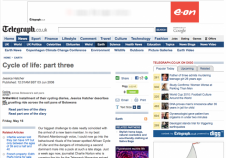 http://www.telegraph.co.uk/earth/3343371/Cycle-of-life-part-three.html This is another Telegraph entry... I'm not sure anything will ever be able to put into words the experience that was cycling across the salt pans in Botswana. It wasn't just the physical exhaustion, but the ludicrous team-dynamics, the unexpected characters we met on the way... just the nature of the whole thing. It still makes me laugh, and is a great pub story. x 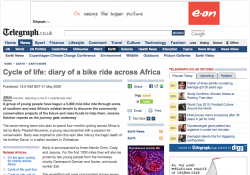 http://www.telegraph.co.uk/earth/earthnews/3341186/Cycle-of-life-diary-of-a-bike-ride-across-Africa.html The Cycle of Life starts. We'll be keeping a blog on the Telegraph site so follow it if you're interested in keeping up with us. |
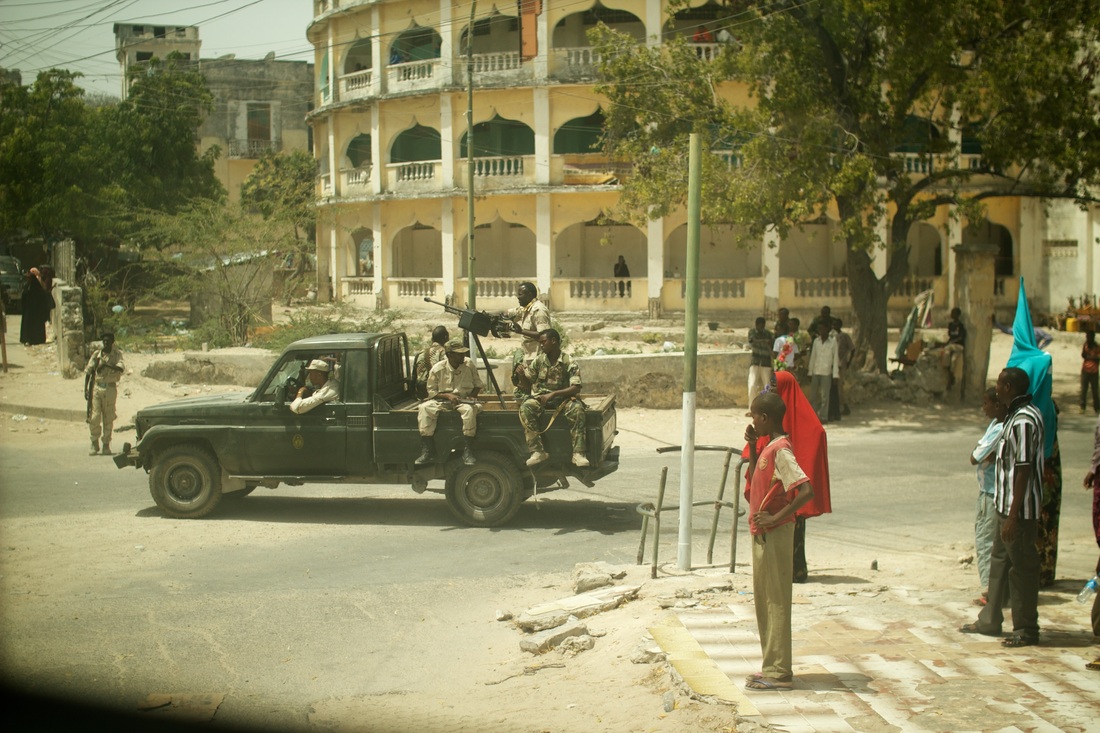
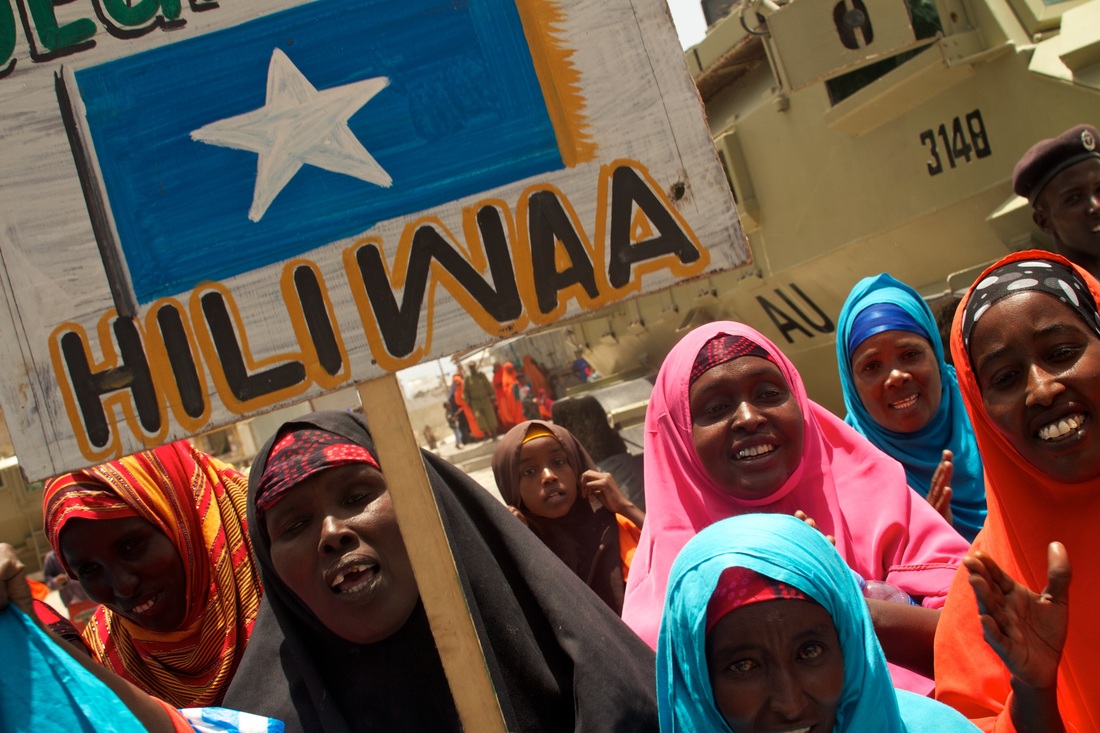
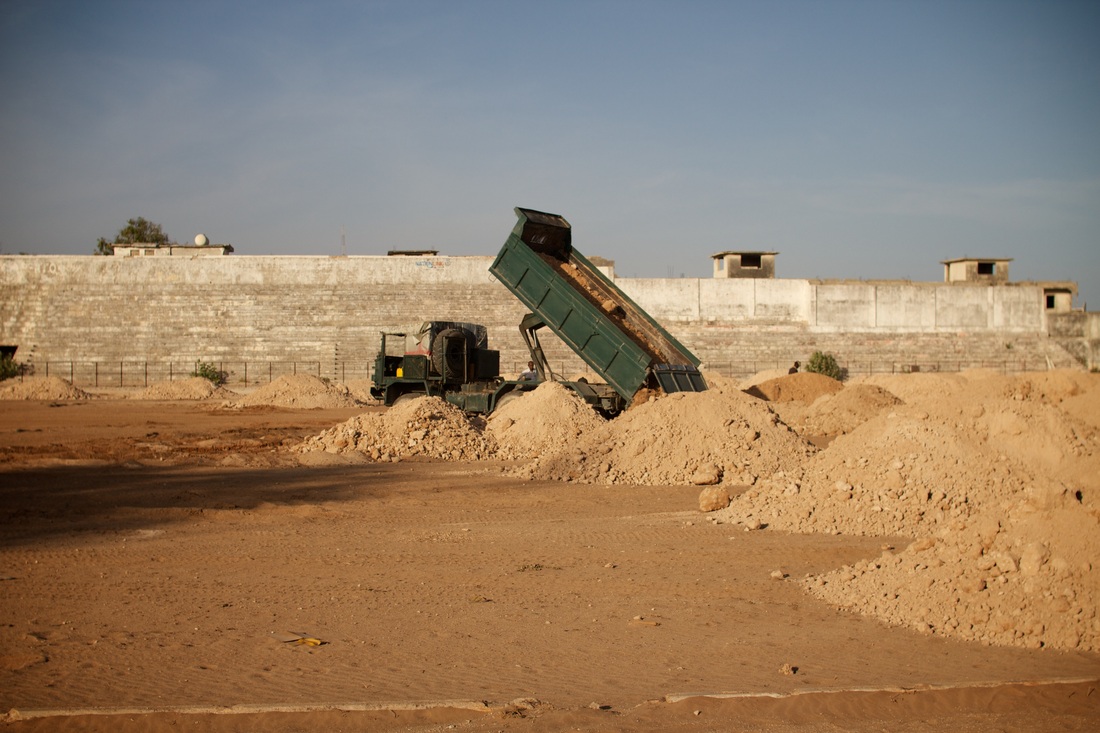
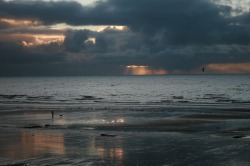
 RSS Feed
RSS Feed

